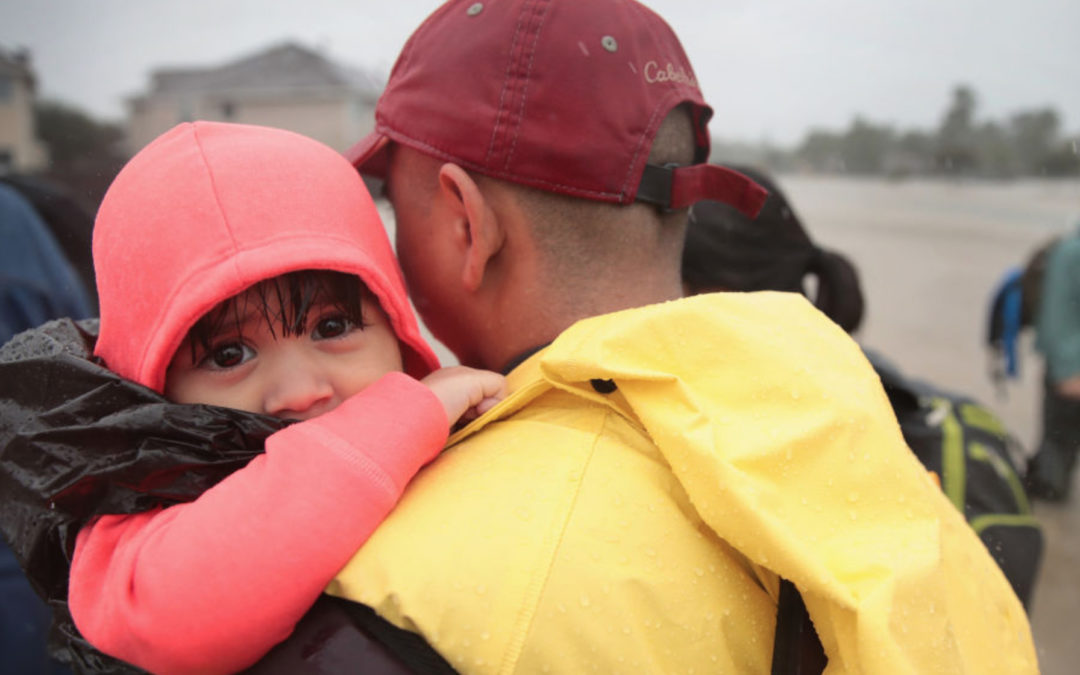
by Lance Cashion | Oct 4, 2017 | Encouragement, God, Pain, Relationships, Spiritual Life, Wisdom
Look into the world around you. Can you feel it’s pain?
A “Harvey Hangover” is the best way to describe my experience since late August. I’ve been back to the coast 3 times. In my hometown of Fort Worth, everything looks normal. Big trees, houses and children playing in the neighborhood are daily realities. As the 24 hour news cycle pushes the conversation on, its ‘normal’ to forget a tragedy.
‘Normal’ on the Texas Coast is much different. Mighty oaks are snapped in two and uprooted, houses are torn apart, not a child is to be found playing. The image is stark and lifeless.
Last Saturday, we were preparing to feast on a fine breakfast with a group of men at a small church in Aransas Pass to fuel ourselves for the day. Our team leader saw a lone man rummaging through a forgotten pile of cloths outside the church. He called out to the stranger to join us for breakfast.
The man came into the building, shaken, weary and with tears in his eyes.
His name is David. My friend Shawn asked him what he was looking for in the clothing piles, he said, “I needed socks.” Behind the tough, worn exterior of tattoos and scars was a broken man. You could see it in his eyes. He was coming down from being high – as he was fidgety, sighing and his eyes were never fixed on one place. I could sense his anxiety, having been there myself, under the bondage of drugs, suppressing my pain. That place ain’t pretty. It is dark, hopeless and controlling.
We prayed for the food and began to eat with David. He was thankful to be here. As he relaxed, he shared his story. His wife was a heroin addict and would leave him and their children for days. She would return and the cycle would begin again with an argument. After the hurricane, he sent the children to live with grand-parents out of town. He was hopeless, hurting and the tears poured. It was apparent this man lived a hard life. At one point he had been in nursing school and working. Somewhere hope had turned to heartache.
I admit, part of my heart began to become callous toward what I saw in the disaster zone.
The ‘normal’ is destruction and need. It’s ‘normal’ to see people wondering the streets with a blank robotic stare on their faces. It is ’normal’ to see people camped outside their homes under make-shift tents. It’s ‘normal’ to see destruction everywhere you look. It’s not like a tornado disaster where you can drive a few blocks and everything is in tact. In contrast, Hurricane Harvey’s path of destruction is so extensive that you can drive 30 miles in any direction and all you can see is devastation. It can cause a heart to become callous.
A couple days ago, I was safely at home preparing to go to work and I began to weep for a few moments. I had to let it all out. Certainly God was softening my heart against the callouses that had formed on the coast. All around is so much pain, brokenness and loss. God touched me and healed a part of my heart that had been dying in indifference. My only response was thankfulness.
It’s right to bend under the burden of the pain of others. I admit to trying to fix before feeling, I understand this is the wrong response.
In God’s amazing grace, He reminds us to look into the world and feel it’s pain.
“And Jesus went forth and saw a great multitude, and was moved with compassion towards them…” Matthew 14:14
Read previous post: Hurricane Harvey: The challenge for every Texan. If you wish to subscribe to this blog, please sign-up here. Every time I post something new, you will receive an email.
by Lance Cashion | Aug 31, 2017 | Encouragement, Fatherhood, God, Personal Growth, Relationships, Wisdom
In last week’s post about fatherhood, I described a father’s gain – the treasure formed and refined in the fires of pain and loss. If you haven’t read it, I recommend you do so before reading this post. Click here to read it.
This week, the story continues.
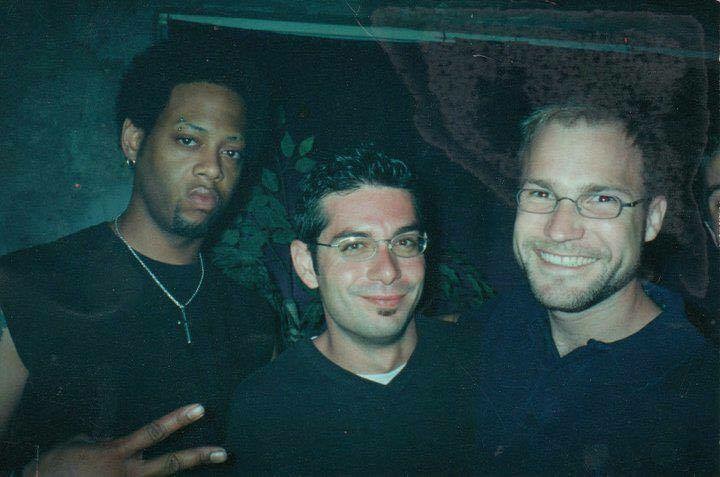
Jamon Horne, Jacob Steele and me circa 2000 in Austin, Texas.
In the months leading up to my friend Jamon’s passing, Pastor Horne and his son had grown closer than ever before. Jamon’s mother will tell you that his dad never left his side. He was with Jamon day and night – loving, serving and shepherding his boy. He was walking with him, leading him in faith knowing full well the final destination. Jamon’s mother knew why her husband was not asleep in the bed with her at night. There was a burning fire of refinement bonding a father and his sick boy. The heat of this trial was forming and fashioning a priceless treasure of fatherhood.
Pastor Horne asked me to speak at Jamon’s funeral. I felt inadequate for the role. However, I realized it was a privilege to speak about my friend, encourage others and share my faith. Furthermore, I believed Jamon wouldn’t have had it any other way.
How does a man stand before his dead friend’s family and say anything worthwhile or meaningful?
How does a man stand before the teenage son of a friend and comfort him? I could barely look at him in the eye without crying.
At the funeral service, I was seated on a stage among a group of fine seasoned pastors. While their words were comforting and powerful, I found strength and encouragement in the silent and solemn acts of my friend’s father. I witnessed one of the most heroic, humbling and powerful scenes of my life.
Finally, the moment arrived when Jamon’s casket had to be closed forever. His parents arose to their feet. Pastor Horne left the side of his wife, accompanied by a friend, and slowly approached his son’s casket with streams of tears running down his face. Trembling but not shaken, the good pastor stood above his son. His face was set like flint. Pastor Horne had made up his mind to remain firm and resolute in what he was about.
A father’s final act of heroic love for his son.
The sanctuary of the church of a couple hundred family and friends fell silent. It was a holy moment. Pastor Horne walked to Jamon’s casket escorted by a deacon. The deacon turned and walked away – leaving Pastor John Horne alone beside his son’s earthly shell. The good pastor gently placed his hand upon Jamon’s lifeless chest and folded the casket dressings inside. Then, he raised his trembling arm to close the casket. This was the same arm that had held Jamon as a baby. The same arm that helped him up when he fell as a child. The arm of discipline and love. The same arm that hugged Jamon on Thanksgiving. Pastor Horne wept and trembled but, he wasn’t crushed by the tremendous weight of grief. His faith held him there.
God was right there and everyone could feel His presence.
I don’t know how long Pastor Horne stood over his son. But, he finally closed his eyes as he slowly closed the cover of the casket. And watching him walk away seemed like turning the final page of a great novel or fading notes of a sweet song. He returned to his wife’s side and held her head to his heart and sang a beautiful hymn. A man humbled yet full of pain, courage and faith beheld his Heavenly Father’s gain.
A father’s gain
I recognized this gain. I knew this treasure as streams of my memories flowed back to when I was with my dying father. He lay at home in the hospital bed provided by hospice – breathing slowly with eyes half open. My father’s mischievous blue-green eyes gazed at me as if he wanted to say something but he was unable to speak or move. We had progressed beyond words and the light was fading.
As I remember back, I couldn’t recall the last time I ate or slept. It seemed that being there was enough for me. God was there sustaining me. With a trembling hand, I would moisten a cotton swab and wet dad’s lips. In the fading embers of my father’s eyes, I saw my father’s gain – a priceless treasure. Deep in those eyes, I caught a glimmer of joy.
Our story continues in the fires of this life.
Fatherhood ain’t easy. Being a son ain’t so easy either.
Sons will become fathers someday. As we experience fatherhood, we must understand there will be pain, distance and fire. However, treasure will be found if we can look beyond the blinding smoke and heat of trials. Something beautiful is being forged. It is our duty to search for this majestic treasure and find a father’s gain.
“When God wants to drill a man,
And thrill a man,
And skill a man
When God wants to mold a man
To play the noblest part;
When He yearns with all His heart
To create so great and bold a man
That all the world shall be amazed,
Watch His methods, watch His ways!
How He ruthlessly perfects
Whom He royally elects!
How He hammers him and hurts him,
And with mighty blows converts him
Into trial shapes of clay which
Only God understands;
While his tortured heart is crying
And he lifts beseeching hands!
How He bends but never breaks
When his good He undertakes;
How He uses whom He chooses,
And which every purpose fuses him;
By every act induces him
To try His splendor out-
God knows what He’s about.“
– Anonymous
Read previous posts: Fatherhood: A Father’s Gain – Part 1
If you wish to subscribe to this blog, please sign-up here. Every time I post something new, you will receive an email.

by Lance Cashion | Aug 17, 2017 | Culture, Current Affairs, Encouragement, God, Jesus Christ, Lance's Philosophy, Leadership, Personal Growth, Relationships, Spiritual Life, Wisdom, Worldview
There are two kinds of people in this world.
People of Peace and People of Strife.
The question we must ask ourselves is: ‘which one am I?’
Everyday, you have a choice as to which you will be.
Gut check questions:
- Are you fascinated by strife and discord?
- Do you become consumed and inflamed by conflict and violence?
- Do the pattern of your thoughts reflect a thirst for forms of entertainment that portray strife, distrust, envy, violence and conflict?
- Or, do strive and violence make you sick and sad to your core?
FW Boreham says “strife has entered into and permeated every department of life. It affects society in general. On every hand, in a million different forms- we meet rivalry, suspicion and distrust. We see class contending with class: the rich oppressing the poor; the poor breathing maledictions on the rich. Petty jealousy mars the sweetness of every friendship; it stultifies the efficiency of every organization; and, entering our very churches, it disturbs and destroys that abiding unity that should be their most conspicuous charm.” The seventh Beatitude extends an olive branch…. “Blessed are the peace makers, for they shall be called the children of God” One does not need to be a ‘Christian’ to understand Jesus’s teaching here. The peacemaker is a lover of peace and works to preserve peace. “The sounds of strife and discord are an agony to his spirit.” says Boreham. Like a rose exhaling it’s fragrance is an involuntary expression of its nature, the peacemaker exudes a spirit of peace without even realizing.
I challenge you to work to become a peacemaker.
- Work not to offend others.
- Work on not taking offense.
- Work to extend an olive branch of peace to another (this is risky).
In order to change the climate of discourse, we must become people of peace (even when discord is the predominate noise).
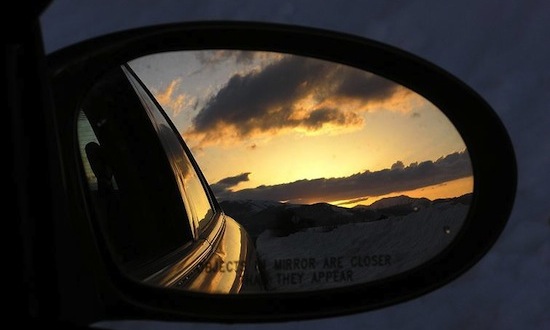
by Lance Cashion | Aug 3, 2017 | Personal Growth, Relationships, Wisdom |
Hypocrisy is
defined as; “
the practice of claiming to have moral standards or beliefs to which one’s own behavior does not conform; pretense; a pretense of having some desirable or publicly approved attitude; a pretense of having a virtuous character, moral or religious beliefs or principles, etc., that one does not really possess.”
In this cultural moment, virtue signaling is all the rage. Everyone seems to be putting up a front to show the world how good they are to elevate their social position. Often times, people equate hypocrisy to Christians. I totally agree! All Christians are hypocrites! Jesus Christ had red-hot scorching words toward (all) hypocrites.
“Woe to you, scribes and Pharisees, hypocrites! For you clean the outside of the cup and the plate, but inside they are full of greed and self-indulgence. You blind Pharisee! First clean the inside of the cup and the plate, that the outside also may be clean.
“Woe to you, scribes and Pharisees, hypocrites! For you are like whitewashed tombs, which outwardly appear beautiful, but within are full of dead people’s bones and all uncleanness. So you also outwardly appear righteous to others, but within you are full of hypocrisy and lawlessness.
Mark 23:25-28
‘Why’ are all Christians hypocrites?
The answer is very simple. Christians are hypocrites because (all) Christians are humans and (all) humans are hypocrites, we all fall short (see Romans 3:23). To put a Christian in a separate category of humans is a category error (error in logic). I hear people say, “the church is full of hypocrites” or Christians are a bunch of hypocrites!” That is absolutely true. You’ll get no argument from me. Here is the deal. An honest assessment of ourselves reveals our own hypocrisy regardless of religion, race, gender, age or ethnicity. Every human being is hypocritical to some extent. We all have claimed something virtuous or high-minded about ourselves that we know is not true. Our inner-self betrays our outer actions. Hypocrisy is a human problem.
So, what is the antidote for hypocrisy? Some would automatically say, “integrity is the antidote to hypocrisy!” I can’t completely agree with that position. It is impossible for a human to possess 100% integrity 100% of the time. You (and I) will break the speed limit, roll through a stop sign, forget to say ‘thank you’, fail to pay your taxes with 100% accuracy, forget to return a call or email, exaggerate a story, forget a birthday or anniversary, feign humility, not tell the whole story (wife asks ‘do you like my dress?’ and you say ‘Why yes dear!’ when you don’t like her dress), fail to come through on a promise, decide not to workout, sleep through an alarm clock, think unkind thoughts about someone but you’re nice to their face, show up late to a meeting, fudge on your diet, etc. I would be a hypocrite if I claimed I NEVER did any of those things ever.
The antidote to hypocrisy is transparency
If we accept the fact that we cannot have 100% integrity 100% of the time, we are not surrendering. We are actually admitting what is true for everyone. Integrity is something we strive for in life. That is a good thing. Transparency is the the admission that “I’m not perfect because I will say things that do not match my actions.” Admitting my hypocrisy does not excuse it. It allows me to own my failure, repent and learn from it. If I’m willing to be open and honest about my hypocrisy by being transparent, it will be extremely difficult for me to hoist the charge of hypocrisy against someone else.
Let’s be intentionally transparent with one another and encourage each other to be open and honest. Let’s hold each other accountable understanding that we are all going to be hypocrites to some extent. That does not excuse it. It is just an honest admission of what is. Try being transparent when hypocrisy raises its ugly head. See how people around you respond to your transparency.
If you think the church is full of hypocrites, you are right. But, we always have room for one more.
Here is a link to a recent sermon by Dr. Ted Kitchens entitled “Are All Christians Hypocrites?”
If you wish to subscribe to this blog, please
sign-up here. Every time I post something new, you will receive an email.
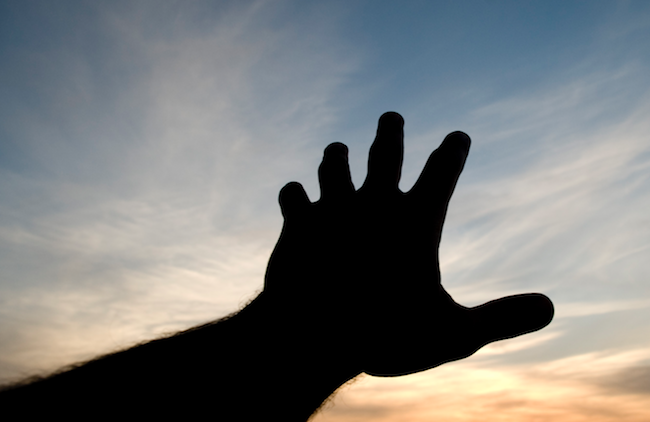
by Lance Cashion | Nov 29, 2016 | Encouragement, God, Leadership, Personal Growth, Relationships, Uncategorized, Wisdom
Do you ever make a commitment to do something and don’t follow through?
Last week a good friend left town for a week with his family. I volunteered to check on their house and feed their fish. I didn’t have to volunteer but I did anyway to make my friend feel good about me. Essentially, I was trying to make myself look good in his eyes by appearing ‘helpful’. The days passed and I didn’t check on their house or feed the fish. Fortunately, the fish didn’t starve to death and his little children didn’t come home from Thanksgiving vacation to Mr. Fish floating belly up. That would have devastated the toddlers.
I had to admit to my good friend what I hadn’t done for him and his family. He forgave me (Thankfully). This may not seem like a big deal but it is because it reveals a larger problem.
It’s interesting how God can gently bring conviction into a heart. Over the last few days, I have had this growing sense of God’s gentle prompting of something I’m NOT doing.
As each day has passed, my attention has been moved toward an area of struggle in my life. It is something I have suffered my whole life. It is self-induced and I must take responsibility for what I am not doing.
Two days ago, an uncomfortable reality about my own nature was crystalized in my mind and my heart grew heavy.
I AM UNRELIABLE
I make promises and commitments I will not keep to people I care about and depend on me to follow through on my word.
This is a very unsettling situation for someone who ‘prides’ themselves on personal integrity. The key word is ‘pride’. I have made huge moral and relational blunders in my past. However, by God’s grace, I have made strides toward personal integrity and living a life that honors God.
My pride has blinded me to the fact that I am completely unreliable. When I don’t fulfill a commitment or keep a promise, that makes me a liar. I must own that fact. This is an integrity issue of monumental proportions! However, it is not ‘who’ I am. I can change. I feel I must change. But I can’t be relied upon to change myself or pull myself up by my proverbial ‘bootstraps.’ Because, remember I am unreliable.
What the heck do I do when I don’t do what I commit to do?
First, I have to admit my problem. I must admit it not only to myself but to others as well. Second, I must admit my need from help. Since, I’m unreliable, I can’t help myself. I must rely on someone else for help. That brings me to the next thing. I must ask the Lord to empower me to become reliable. After all, He is reliable. Next, I must make good on my current commitments and ask for forgiveness from those I’ve let down. Finally, I must ask my spouse and friends to help me and hold me accountable to my commitments.
Do you have any unfulfilled commitments?
Do you have any unkept promises?
Make a list right now. Pray and ask God for help. Enlist a couple close friends or family to hold you accountable.
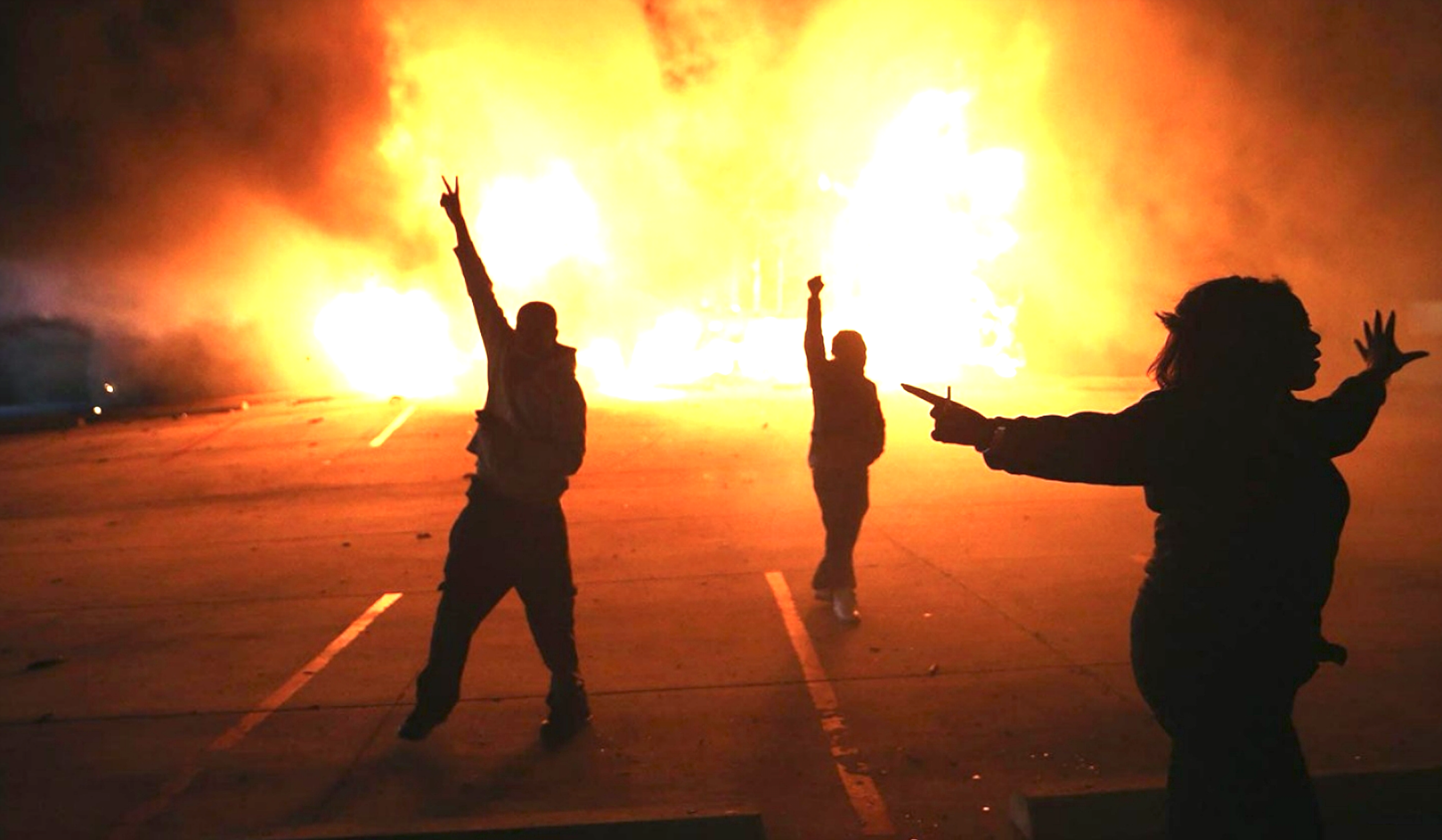
by Lance Cashion | Nov 14, 2016 | Culture, Current Affairs, Education, Encouragement, God, Politics, Reconciliation, Relationships, Uncategorized, Wisdom, Worldview
Read the headlines from around our nation. What do you see? You see anger, hostility, confusion, selfishness and violence. We are seeing riots and division. What are we not seeing? We are not seeing compassion, caring, or charity.
2800 years ago in ‘the great city’ of Nineveh, we see an evil and cruel people. The entire city was heartless and cold. The lack of love and compassion and a bent toward violence and selfishness is described as sin. Nineveh was within a hair’s breadth of experiencing God’s judgement and destruction. And who could blame Him? If you saw a city full of people filled with rage, hatred, violence and cruelty toward each other, wouldn’t you just want to end it? Why didn’t God go with the ‘nuclear option’ in Nineveh? I would have!
How would you describe the ‘tone’ in our nation today?
Would you describe it as charitable and peaceful or toxic and divisive?
We are a nation divided. The media is helping to drive the division. As a Christ-follower, I must counter this division with a comprehensive worldview anchored the word of God. I am called to think redemptively and pursue reconciliation through God’s love. Why is it so hard?
Here’s the problem. I struggle with my part. When I am constantly called names or told that I am racist, intolerant, etc. or characterized with the latest straw-man fallacy, I grow angry because I am none of those things. If I am honest, I must admit I harbor ill-will toward the people who believe I am those things. That is my sin. I must own up to it.
God was compassionate and Jonah was not!
God called Jonah to go to Nineveh. Jonah hated Nineveh (a sin) and ran from God (a sin). He eventually ended up in Nineveh (a miracle). His mission was to call for the people to repent and turn to God. In doing so, God would relent from destroying the city, a demonstration of His compassion and love for all people. Nineveh was headed for destruction but God showed compassion.
The people of Nineveh turned to God, He relented and the city was saved! Furthermore, the city prospered. When God showed compassion, Jonah was angry because he didn’t see the people how God saw them. Jonah wanted the city judged and destroyed. Essentially, he was no different than the cruel hateful people of Nineveh. I have to claim that sin for myself.
My part as a Christ-follower
2 Chronicles 7:14 says, “if my people who are called by my name humble themselves, and pray and seek my face and turn from their wicked ways, then I will hear from heaven and will forgive their sin and heal their land.” (Note: I understand the context of this passage is related to Israel. Therefore, I am not outlining a prescriptive use but a descriptive framework of how to understand repentance, prayer and seeking God when we sin – pointing to His mercy and grace.)
People’s part: People who claim Christ must humble themselves, pray, seek and turn (repent) from sin.
God’s part: He will hear, forgive and heal.
I believe Christ-followers across the nation have humbled themselves and prayed over the last year (2016). I don’t know if we are actively seeking God’s face or turning from our wicked ways. I hope we have. Have you personally confessed the anger and pride in your heart? Frankly, I am writing this to myself. It is a struggle.
Perhaps, this is my call to the people of God. “Hey church, we bent our knee in humility and prayed. Maybe God is relenting and showing us his compassion. Now, we must be obedient and see this through. We need to seek God’s face and turn from our hatred and divisiveness. We must not boast but reach out in humility and love to a people God loves. And we must act right now! Forget what people say about you, act redemptively and in the spirit of love immediately!”
If we demonstrate God’s love through how we love others, who’s to say how God’s spirit may move upon the people of our nation?
The king of Nineveh said, “Who knows? God may turn and relent and turn from his fierce anger, so that we may not perish.”
God’s response?
“When God saw what they did, how they turned from their evil ways, God relented of the disaster that he had said he would do to them, and he did not do it.”
What is my response? Is it an unrelenting anger, like Jonah?
God is compassionate and we are not!
You see Jonah really struggled with getting on the same page as God. We all do.
The last sentence in the book of Jonah ends with a question, “And should not I (God) pity Nineveh, that great city, in which there are more than 120,000 persons who do not know their right hand from their left, and also much cattle?”
Please allow me a bit of liberty to apply the final verse if I may.
And should not I (God) pity America, that great nation, in which there are more than 320 million people who do not know their right hand from their left, and also much wealth?”
I am convinced that we are being tested and challenged. We have the greatest opportunity in generations to reach our nation with the love of Christ.
Please note, this post is a message to Christ-followers (aka, the Church). I do not expect non-believers believer or understand this. But, a believer should consider it and mediate on what God has to say in this cultural moment.
Reference: 2 Chronicles 7 and the Book of Jonah






